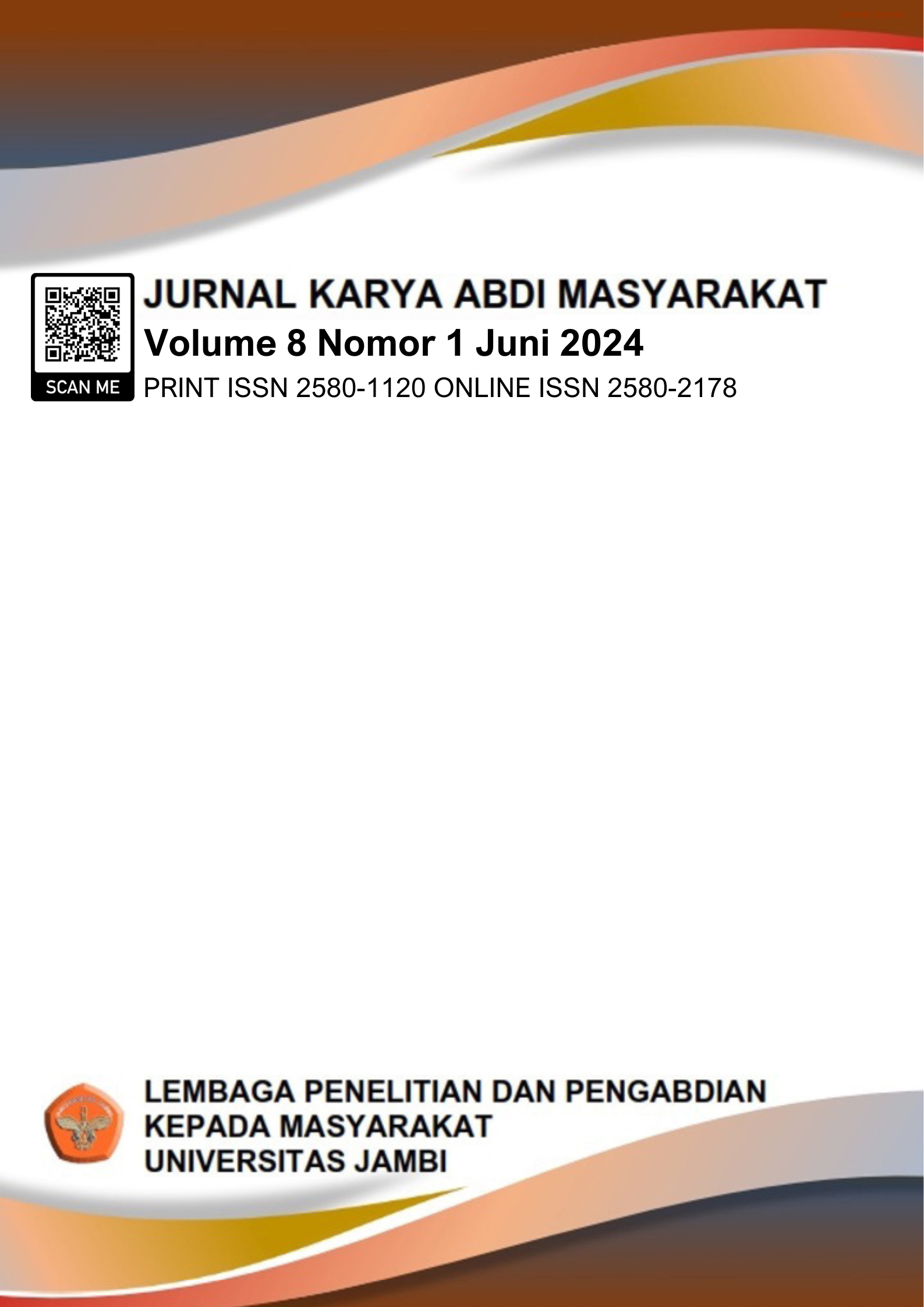Sosialisasi dan Edukasi Langkah Pencegahan Golput untuk Pemilih Lansia yang Mempunyai Penyakit Khusus di Desa Pemecutan Kaja
DOI:
https://doi.org/10.22437/jkam.v8i1.32039Keywords:
General Elections, Golput, ElderlyAbstract
General elections, or elections are important moments where every citizen has the opportunity to participate in determining the course of government. However, to maintain a high voter turnout, especially among the elderly, there are issues that need to be addressed. Today, Indonesia faces the problem of low voter turnout, which can be caused by various reasons, one of which is abstention. Golput (white group), or not exercising the right to vote, is a phenomenon that needs to be seriously considered, especially among the elderly. Over the past few elections, there has been a decline in voter turnout among the elderly. This could indicate that people are less informed or unaware of how important their role is in the democratic process. The absence of socialization can be a problem that causes elderly voters not to exercise their right to vote in general elections. When elderly voters also suffer from special diseases, the problem of abstention becomes more complex. Elderly people, who are vulnerable, often face physical and mental problems that can prevent them from participating in the electoral process. In the implementation of the community service program, namely helping the government by providing education to the elderly with the theme "Socialization and Education of Golput Prevention Steps for Elderly Voters with Special Diseases in Pemecutan Kaja Village" is expected to help educate the elderly in using their voting rights in general elections.
Downloads
Downloads
Published
How to Cite
Issue
Section
License
Copyright (c) 2024 Kadek Adyatna Wedananta, Rizki Raihandi

This work is licensed under a Creative Commons Attribution 4.0 International License.
Please find the rights and licenses in Jurnal Jurnal Karya Abdi Masyarakat (JKAM).
- License
The non-commercial use of the article will be governed by the Creative Commons Attribution license as currently displayed on Creative Commons Attribution 4.0 International License.
- Authors Warranties
The author warrants that the article is original, written by stated author(s), has not been published before, contains no unlawful statements, does not infringe the rights of others, is subject to copyright that is vested exclusively in the author and free of any third party rights, and that any necessary written permissions to quote from other sources have been obtained by the author(s).
- User Rights
JKAM's spirit is to disseminate articles published are as free as possible. Under the Creative Commons license, JKAM permits users to copy, distribute, display, and perform the work for non-commercial purposes only. Users will also need to attribute authors and JKAM on distributing works in the journal.
- Rights of Authors
Authors retain the following rights:
- Copyright, and other proprietary rights relating to the article, such as patent rights,
- The right to use the substance of the article in future own works, including lectures and books,
- The right to reproduce the article for own purposes, provided the copies are not offered for sale,
- The right to self-archive the article.
- Co-Authorship
If the article was jointly prepared by other authors, the signatory of this form warrants that he/she has been authorized by all co-authors to sign this agreement on their behalf, and agrees to inform his/her co-authors of the terms of this agreement.
- Termination
This agreement can be terminated by the author or JKAM upon two months notice where the other party has materially breached this agreement and failed to remedy such breach within a month of being given the terminating party notice requesting such breach to be remedied. No breach or violation of this agreement will cause this agreement or any license granted in it to terminate automatically or affect the definition of JKAM.
- Royalties
This agreement entitles the author to no royalties or other fees. To such extent as legally permissible, the author waives his or her right to collect royalties relative to the article in respect of any use of the article by JKAM or its sublicensee.
- Miscellaneous
JKAM will publish the article (or have it published) in the journal if the articles editorial process is successfully completed and JKAM or its sublicensee has become obligated to have the article published. JKAM may conform the article to a style of punctuation, spelling, capitalization, referencing and usage that it deems appropriate. The author acknowledges that the article may be published so that it will be publicly accessible and such access will be free of charge for the readers.








